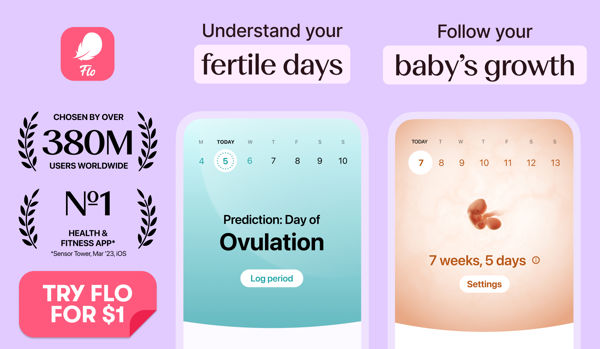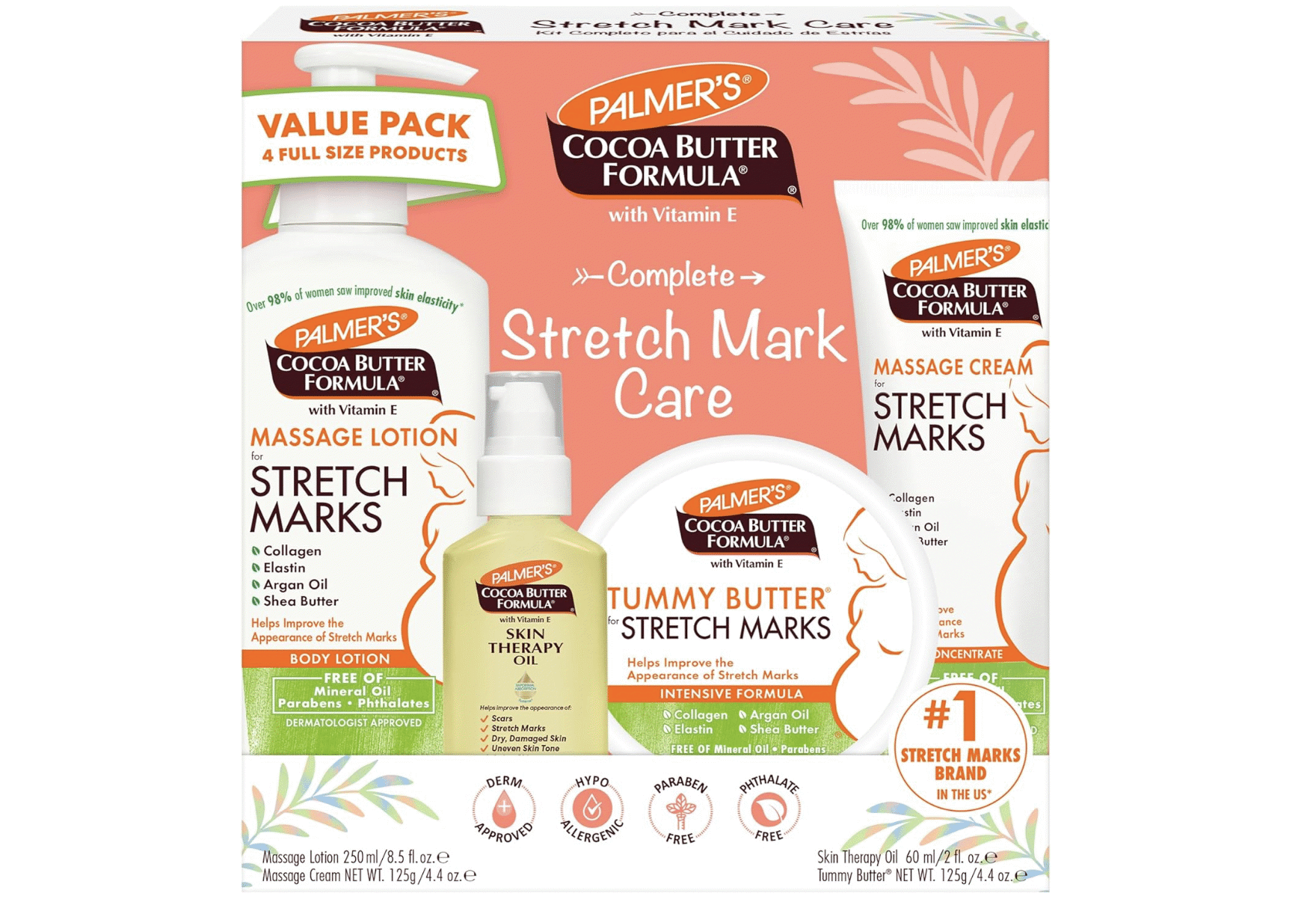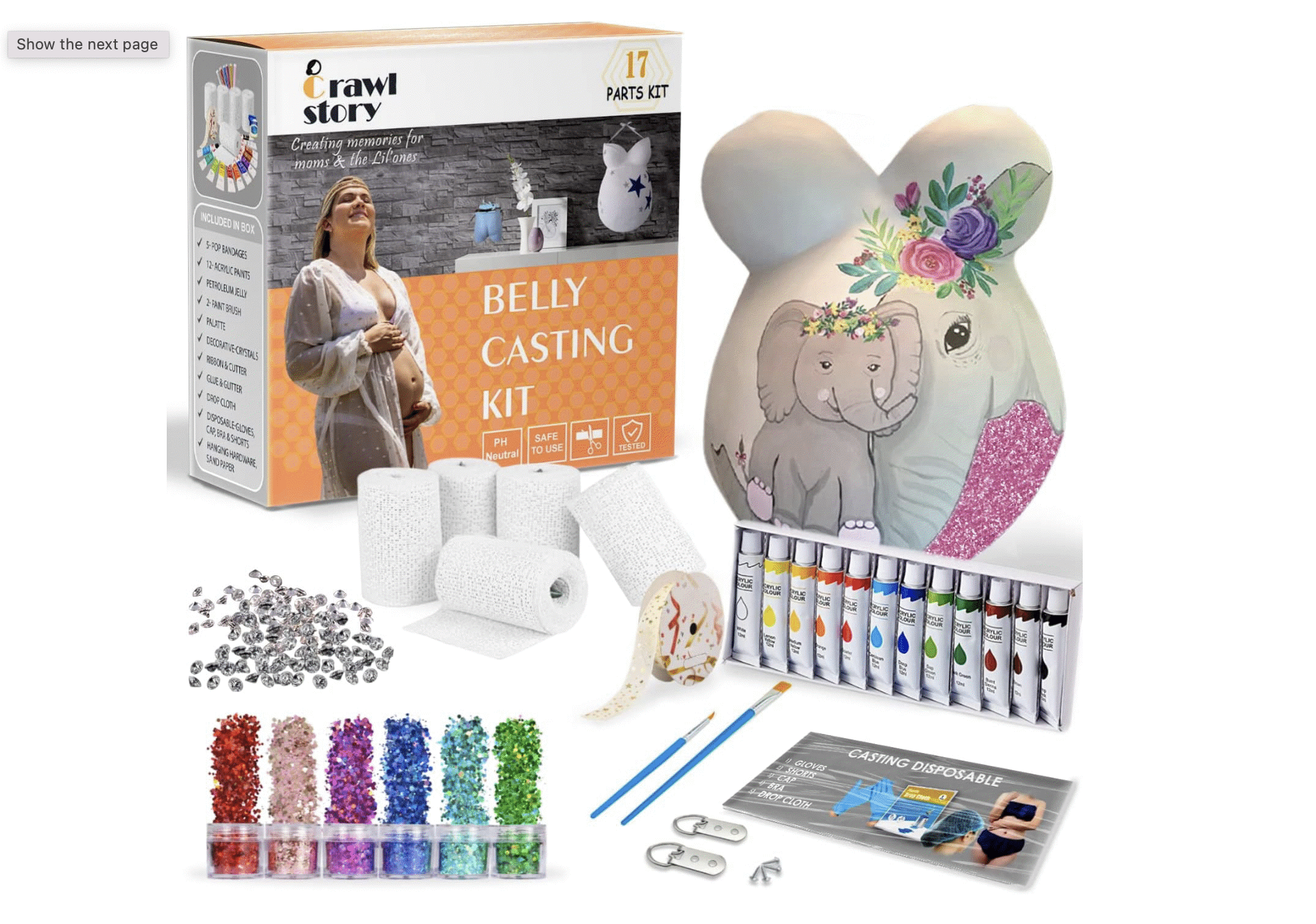Pregnancy Self-Care

Get started on your parenting journey with feeding essentials, changing must-haves and other handpicked goodies from leading baby brands, worth over $90! Now you can upgrade to a Boy or Girl box!

Get started on your parenting journey with feeding essentials, changing must-haves and other handpicked goodies from leading baby brands, worth over $90! Now you can upgrade to a Boy or Girl box!
Pregnancy is a time filled with a variety of emotions, feelings, and experiences. Taking care of yourself and your growing baby is challenging, especially when your other responsibilities and problems won't disappear just because you're pregnant. If you are feeling overwhelmed during pregnancy, it's vital to remember that while your other responsibilities are important, it's okay to put yourself and your baby first. Recognizing your feelings, communicating with and seeking help from others, and learning to say no are all important strategies for managing your feelings during pregnancy.
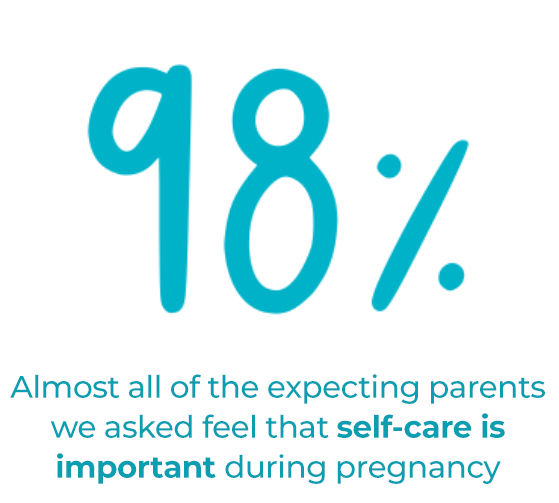
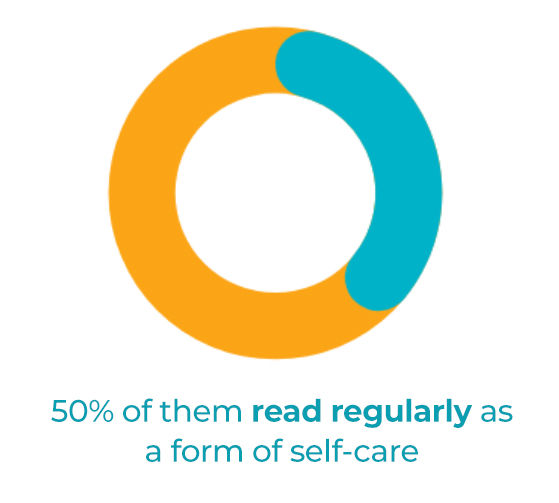
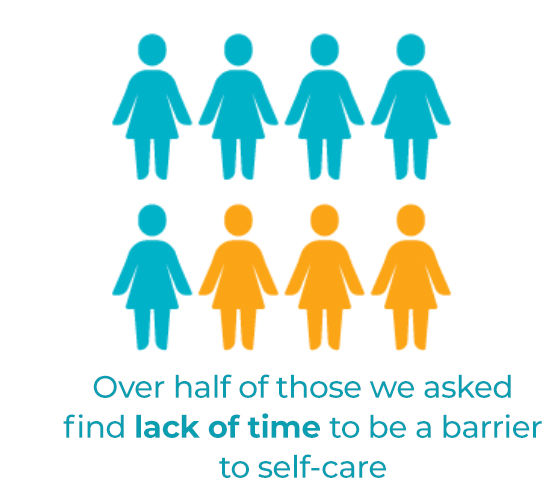
Maintaining your mental and emotional health during pregnancy is just as crucial as taking care of your physical well-being. It’s normal to experience a range of emotions, from excitement to anxiety, as your body and life change. One effective way to manage these feelings is to establish a strong support network. Surround yourself with understanding friends and family who can offer encouragement and a listening ear. Regularly sharing your thoughts and concerns with them can help alleviate stress and remind you that you’re not alone in this journey. Additionally, setting aside time for self-care is vital. Whether it’s practicing mindfulness, engaging in light exercise, or enjoying a hobby you love, these activities can help you stay grounded and focused on the positives of your pregnancy.
Equally important is finding ways to connect with your inner self. Embrace relaxation techniques like deep breathing, meditation, or gentle yoga to soothe your mind and body. These practices can help manage stress and foster a sense of calm. It’s also beneficial to set realistic expectations for yourself and remember that it’s okay to ask for help when you need it. Taking care of your emotional health not only benefits you but also creates a nurturing environment for your baby. Remember, this time is a unique and precious phase of your life, and giving yourself permission to experience and express your feelings is a crucial part of a healthy, happy pregnancy.
A good place to start is acknowledging and understanding your feelings. It’s important to recognize that feeling overwhelmed is a normal part of pregnancy—you are experiencing an incredible amount of change within your body, and it’s okay to feel stressed, anxious, or emotional during this time. One way to understand your feelings is by identifying specific situations or tasks that trigger your feelings of overwhelm. Once you recognize these triggers or patterns, it’s easier to manage or avoid them so you can maintain your equilibrium. This also helps you prepare to manage and address your feelings when they arise.
There are many things you can do to manage feelings of overwhelm during pregnancy. Prioritize what is important to you and try to let go of less critical things. Creating a list of tasks and ranking them by importance can be helpful. Be patient with yourself if you don’t get to everything on your list—it's okay to adjust your expectations and accept that some things may not go as planned. You don’t have to do everything perfectly. If possible, consider delegating tasks and asking for help from your partner, family, or friends. This can relieve some of your burden and stress and give you more time to relax. It’s also important to schedule some "me time" to decompress and provide some relief for yourself.
Creating a calm environment can contribute to a better emotional and mental state. Try to declutter and organize your living space, and incorporate calming elements like soft lighting, relaxing music, or soothing scents. If decluttering feels like just one more task, ask someone for help! Practicing mindfulness or guided meditation can also help reduce stress and anxiety.
Staying connected with those around you is essential for your well-being and a great way to manage feelings of stress, overwhelm, anxiety, depression, and more. Sharing your experiences and feelings with friends and family can provide comfort and perspective, and listening to the experiences of others can help you find ways to support them as well. Consider joining a pregnancy support group, either in-person or online, where you can meet other expecting moms and share your experiences. You could also enroll in prenatal classes that cover relaxation techniques, childbirth education, and parenting skills, which can help reduce anxiety about the unknown.
Don’t be afraid to seek professional help from a therapist or counselor, especially if feelings of overwhelm become unmanageable. Prenatal therapy can provide valuable coping strategies. No matter how overwhelmed you might feel, there are steps you can take to support yourself and feel better. You got this, mom!Expecting a baby brings a wave of emotions to parents. Many of those emotions are positive including love, joy, and excitement. However, many parents experience a surge of negative emotions that may leave them feeling confused, discouraged, and unsure of what to do. Many expecting parents struggle with physical and mental health challenges, including stress and feeling overwhelmed. If pregnancy is a new experience for you, it may be especially difficult to recognize when you need to ask for help. If this is the case for you or a loved one, know that you are far from alone.
You may feel that challenges are a part of pregnancy and you simply need to tough it out. But we were never meant to do pregnancy and parenthood alone! If you are lucky enough to be surrounded by people who can support you, lean on them. Ask for what you need and graciously accept the assistance offered by those who care about you. A big piece of asking for help is trusting the other person to be adult enough to say “no” if they cannot. There is power in community.
In addition to seeking help from family, friends, your healthcare provider, therapists, counselors, and support groups, there are also mental health apps like Mindfulness, Headspace, and Calm that offer guided meditations, relaxation techniques, and stress management tools that can be particularly helpful during pregnancy. If all else fails, there are helplines like the Postpartum Support International (PSI) helpline offering immediate support and crisis intervention for those in need.
Amidst the anticipation of welcoming a new life, you'll need to prioritize your own well-being through self-care. Taking deliberate steps to nurture your body and mind can enhance your overall health, alleviate common pregnancy discomforts, and prepare you for the journey ahead. From managing stress to maintaining physical health, here are some tips to help you feel balanced and happy during your pregnancy.
Pregnancy can be a whirlwind of changes, emotions, and physical demands, making it easy to prioritize everything and everyone else over your own needs. However, taking deliberate time for self-care helps manage stress, reduces anxiety, and alleviates common pregnancy discomforts such as fatigue and back pain. Engaging in activities that promote relaxation and rejuvenation not only enhances your quality of life but also prepares you mentally and emotionally for the arrival of your baby.
Self-care during pregnancy is not just about pampering yourself; it’s about ensuring you remain balanced and healthy. Regularly setting aside time for self-care can improve your mood, boost your energy levels, and foster a deeper connection with your body and your baby. Simple practices like gentle exercise, healthy eating, mindfulness, and adequate rest can make a significant difference. By nurturing yourself, you’re also setting a positive example for your future child, showing that self-respect and self-care are vital components of a fulfilling life.
So, go for it! Make the time! Prioritizing self-care during this transformative period helps lay the foundation for a healthier, happier pregnancy and a smoother transition into parenthood.
Pregnancy is a time when self-care becomes even more essential, and indulging in a spa treatment can be a wonderful way to relax and rejuvenate. However, it's important to choose spa treatments that are safe and suitable for your changing body. Opt for prenatal massages specifically designed for pregnant women, which can help alleviate common discomforts such as back pain and swelling while promoting relaxation. Make sure your massage therapist is trained in prenatal techniques and avoid any deep tissue or areas that may be too intense.
When selecting other spa treatments, consider options like gentle facials, which use products free of harsh chemicals or strong scents, and foot baths, which can be soothing and help with swelling. Avoid treatments that involve high heat and are off-limits during pregnancy, such as saunas or hot tubs, as these will raise your body temperature and potentially pose risks to your unborn baby. If you’re worried, you can always consult with your healthcare provider before booking any spa treatments to ensure they are safe for your specific pregnancy needs.
Pregnancy is a time of incredible change, not just for your body but also for your routine. It's crucial to take time for yourself. A little self-care can also go a long way in helping you feel relaxed and rejuvenated. If you don’t want to break the bank, try some DIY spa treatments that are safe for expecting moms, like a Nourishing Avocado Hair Mask or a Calming Lavender and Oatmeal Bath Soak
Have you considered keeping a pregnancy journal? Whether you regularly journal or if you’re brand-new to the process, pregnancy can be the ideal time to record this momentous time in your and your baby’s lives. If this is something that interests you, we’ve gathered some information you may like to consider as you begin your pregnancy journal.
If you decide to keep a pregnancy journal for the entirety of your pregnancy or even a few weeks, it can be a memorable and beneficial process filled with emotion. We believe you and your baby will be grateful for any and all memories saved. Happy journaling!
One important way to make sure you’re feeling your best during pregnancy is to ensure you’re getting enough sleep! While sleeping through the night can be challenging as your belly grows, hormones fluctuate, and your body generally changes, there are things you can do to promote a restful night’s sleep. Here are some of our favorite sleep solutions and tips to establish a relaxing and pampering sleep routine.
Sticking to consistent sleep and wake-up times is one of the best things you can do to make sure you’re getting enough sleep. It may be difficult, but staying within an hour or so of your set times every day will help regulate your body’s internal clock so you have the best chance of sleeping through the night.
Additionally, there are several things you can do during the day to ensure your body (and your baby) are ready for sleep. Stay hydrated and drink plenty of water during the day, but reduce your water intake in the evening to minimize the need for nighttime bathroom trips. Avoid or limit your intake of caffeine and sugary foods in the afternoon and evening – they can keep you awake at night! Avoid eating heavy meals before bed, as they can cause discomfort and indigestion. Try eating a lighter snack like fruit or milk and honey instead. Finally, put away your devices at least an hour before bed to reduce your exposure to blue light, which interferes with melatonin production.
Now for the fun part: creating a relaxing routine to calm you down and give you something to look forward to at the end of your day! Some of our favorite activities include reading a good book, taking a warm bath or shower, or journaling. Consider practicing prenatal yoga as a way to wind down before bed. You can find a lot of ideas on YouTube or online–just make sure to consult your doctor before adding any new forms of exercise to your routines. Some pregnancy-safe poses include the Reclined Bound Angle pose, Pigeon pose, Cat-Cow pose, and Child’s Pose. You may want to try some mindfulness techniques to relieve stress after a long day. Meditation exercises can help manage stress and anxiety, and deep breathing techniques can calm the nervous system and help you prepare for sleep. Even a short and simple breathing exercise has countless benefits. Simply breathe for 1-2 minutes and focus on your breath going in and out of your body. Other activities like talking with your partner or doing some pampering beauty treatments are also excellent options for relaxation. Whatever activities you choose, make sure it’s something you can stay consistent with and enjoy. Take some time to reward yourself after a long day and enjoy some “me time” - you deserve it!
Once it’s time to get under the covers, make sure you have primed your sleep environment to make it easy to doze off. Maintain a cool and dark bedroom environment to promote better sleep. Use blackout curtains to keep the room dark, which can help with falling and staying asleep. If you don’t have blackout curtains, an eye mask also works well. Consider investing in a supportive maternity pillow, soft sheets, and a comfortable mattress to enhance your sleep quality. As far as sleep positionsgo, many experts recommend that pregnant women sleep on their side to promote blood flow to their babies and throughout their bodies. Sleeping on the left side specifically will improve circulation, maximize blood flow to the placenta, and reduce pressure on the back. It may be helpful to place pillows between your knees, under your belly, and behind your back for additional support and comfort while sleeping.
If you find yourself unable to sleep at night, you’re not alone–insomnia affects up to 78% of pregnant women. Consult your healthcare provider if you are having trouble sleeping. If you’re awake and unable to fall back asleep after 20 minutes, try getting out of bed and doing a quiet activity like reading or journaling. Go back to bed and try to sleep again after a few minutes or when you feel sleepy. To prevent and relieve leg cramps, try stretching before bed or during the night, as well as staying hydrated during the day. If you struggle with heartburn, try eating smaller meals, avoiding spicy foods, and propping your upper body up with pillows to reduce it.
Always consult your healthcare provider if you are experiencing consistent trouble sleeping. They may also be able to recommend pregnancy-safe sleep aids or treatments beyond the scope of this article. Ensuring you optimize your sleep environment and mitigate any challenges will help you sleep through the night. Choosing relaxing activities to do before bedtime and following them consistently will give you something to look forward to and a way to practice self-care during this demanding time!
It’s no secret that having a baby can turn your world upside down! Pregnancy is filled with its own share of twists and turns, but it’s also the optimal time to prepare before the excitement (and sleep deprivation!) or a new baby takes over. We’ve gathered some of the best organizational tips to set you up for success during pregnancy.
With a little organization you can make the most of your time as a new family without unnecessary added stress. Remember — even if everything doesn’t go according to plan, you can still have a successful pregnancy, birth, and postpartum experience. You’ve got this!
Exercise during pregnancy can be incredibly beneficial, offering numerous physical and mental health advantages. Here are some tips to help you stay active safely:
By following these tips, you can enjoy a safe and rewarding exercise routine that supports your overall health and well-being throughout your pregnancy.
Pregnancy brings joy, anticipation, and a host of changes, not only for you but for your relationships as well. As the physical and emotional shifts of pregnancy unfold, maintaining strong and healthy connections with your spouse or partner, family, and friends can present both opportunities and challenges. Navigating this new phase requires effort and understanding from everyone involved. Join us as we explore practical strategies and heartfelt insights to help foster meaningful relationships during your pregnancy.
Maintaining a healthy relationship with your spouse or partner during pregnancy is essential as you navigate the exciting yet challenging journey of preparing for a new addition to your family. Pregnancy can bring about significant changes in dynamics, from shifts in daily routines to heightened emotions and increased stress. Open and honest communication is key to navigating these changes together. It’s important to discuss your feelings, expectations, and concerns regularly, allowing both partners to express their thoughts and support each other through the ups and downs of pregnancy.
In addition to communication, spending quality time together can strengthen your bond and provide much-needed relief from the pressures of impending parenthood. Engage in activities that you both enjoy, whether it’s a relaxing evening out, a cozy movie night at home, or simply talking about your hopes and dreams for the future. Supporting each other emotionally and practically, such as sharing responsibilities and making joint decisions, fosters a sense of teamwork and unity. By prioritizing your relationship and making time for each other, you can build a strong foundation for your growing family and ensure that your partnership remains resilient and loving as you embark on this new chapter together.
Maintaining a healthy relationship with your in-laws during pregnancy requires clear communication, boundaries, and mutual respect. It's important to establish your needs and preferences regarding their involvement with open and honest conversations to help manage expectations and prevent misunderstandings. Discussing your plans and any concerns you have in advance allows your in-laws to understand your perspective and be supportive in ways that align with your comfort level.
Setting boundaries while remaining considerate is also crucial. Clearly define what you need in terms of support and involvement, and gently but firmly communicate these boundaries. For instance, if you prefer certain aspects of your pregnancy or baby’s arrival to remain private or if you have specific preferences for visiting times, it's helpful to express these politely but directly. At the same time, show appreciation for their interest and support to foster goodwill. Balancing your needs with their desire to be involved helps maintain a positive and respectful relationship, ensuring that their involvement is a source of support rather than stress during your pregnancy.
During pregnancy, your priorities and routines often shift, and maintaining friendships during this time can be both rewarding and challenging. Open communication is the key. Keep your friends in the loop about your life changes. Share your experiences, both the joys and the challenges, to help them understand what you’re going through and keep your connection strong. It’s also important to let your friends know how they can support you, whether through advice, companionship, or simply by being a listening ear.
While your schedule might become more focused on pregnancy-related activities, making an effort to stay connected with your friends is crucial. Arrange for low-key get-togethers, like a coffee date or a simple phone call, that fit into your new routine. Even small gestures, such as sending updates or checking in regularly, can maintain the bond you share. Being flexible and understanding when plans change can also help keep the friendship alive. Try to find a balance between your new responsibilities and your existing relationships, so you can continue to enjoy the meaningful connections and support that friendship brings.
Also keep in mind that you cannot force someone to change, or accept change. If there is someone in your life who just doesn’t get it and if that relationship is becoming stressful, or toxic to your mental and emotional health, have the strength to step away and create some space. Not everyone will understand your journey, and that’s okay.
Navigating your professional environment while pregnant requires a balance of clear communication and thoughtful consideration. It’s important to inform your boss and co-workers about your pregnancy at a time that feels right for you, typically once you’re past the first trimester or after you’ve had your initial prenatal appointments. Providing a formal update allows you to discuss any necessary adjustments or accommodations, such as flexible work hours or modifications to your workload. Approach the conversation professionally, highlighting your commitment to your role while addressing any concerns or needs related to your pregnancy.
Note that pregnancy discrimination is against the law. The Equal Employment Opportunity Commission (EEOC) enforces three federal laws that protect pregnant employees. This does not mean you get a free pass just because you are pregnant. You are still at risk of losing your job for poor performance, but you cannot be fired simply because you are pregnant. If you have questions about what is/isn’t legal activity from your employer or coworkers during your pregnancy, consult with a lawyer.
Maintaining open lines of communication with your boss and co-workers is crucial. Keep them informed about any changes that might affect your work, such as medical appointments or any potential need for leave, including maternity leave. Being proactive in managing your responsibilities and ensuring that your tasks are well-organized can help minimize disruption to your team. Additionally, showing appreciation for their support and understanding can foster a positive work environment. Balancing professionalism with transparency helps to ensure that your pregnancy is handled smoothly, allowing you to focus on your well-being and your career simultaneously. Good luck!The information on the Your Baby Club website is not intended to be a substitute for professional medical advice, diagnosis or treatment. Always discuss any health concerns with a qualified healthcare provider and carefully review all guidance that comes with any medications or supplements before taking.

